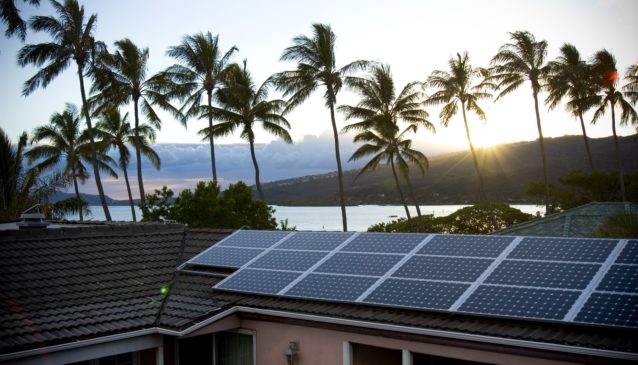Hawaii secures $2 million in federal funding for solar desalination development
KAILUA-KONA, HAWAII – The Natural Energy Laboratory of Hawaii Authority (NELHA) is set to receive a $2 million award from the U.S. Department of Energy Solar Energy Technologies Office (SETO) to advance solar-thermal desalination technologies, which can reduce cost and expand the market for creating freshwater from otherwise unusable waters.
The project at NELHA will demonstrate improvements to thermal desalination technologies and low-cost integrated designs for solar-thermal collection and storage to reduce the cost of desalination at its Hawaii Ocean Science and Technology Park (HOST Park) on the Island of Hawaii.
“This is another example of the exceptional value that our support and investment into the critical infrastructure of this technology park in West Hawaii has generated,” said Gov. David Y. Ige. “We will continue to pursue federal funding to allow NELHA to maintain its competitive advantage and give the community an asset found in very few places in the world.”
“This project will be the world’s largest forward osmosis (FO) solar thermal desalination plant for a high visibility ‘on sun’ demonstration of seawater desalination for agricultural applications,” said Gregory P. Barbour, executive director for NELHA. “The project will include commissioning an existing 2MW solar thermal array, coupling it to next-generation 130,000 gallons per day FO system and delivering water to a commercial customer, Cyanotech, at the HOST Park who will use it for commercial aquaculture production of microalgae for nutraceuticals” he added.
This project will advance the techno-economic viability of solar-powered FO by reducing the levelized cost of water 40 percent less than that of current state-of-the-art technology.
The NELHA team will demonstrate a system that incorporates a concentrating solar thermal collector array delivering heat to a FO system. This system will utilize a new generation of membranes whose energy efficiency and durability will be demonstrated in this project.
“This project is very important to NELHA for a number of reasons,” explained Barbour. “First, these funds will help get new technology for desalination to market at a much lower cost. Second, we have been looking for a suitable use for the old Keahole Solar Power (Sopogy) site for some time, and this project will use all of the existing infrastructure on the site. Finally, NELHA will be producing a significant amount of water for agricultural use and free up existing potable water for expansion of new projects at HOST Park.”
SETO has selected 14 projects in its Solar Desalination program to reduce the cost of solar-thermal desalination by performing integrated tests on best-in-class, near-commercial desalination systems that produce repeatable results with clear and quantifiable objectives. Electricity costs account for up to half of the operating expenses for today’s desalination operations and require plants to be grid-connected. Using solar-thermal power and low-cost components for integrated designs can enable smaller, more portable systems and expand access to desalination technologies.
Dr. Alexander Leonard of NELHA was instrumental in developing the proposal and the leads the NELHA team, which also includes Trevi Systems Inc., Cyanotech and Hawaii First Water LLC.
Mr. John Webley, President of Trevi Systems Inc. said: “We are excited to receive this funding and work with NELHA and other team members to validate the commercial viability of our technology. We have been involved in the greener side of desalination for over 10 years and the next wave of water treatment using our technology will disrupt the water and energy nexus, helping farmers deliver more affordable food to your table as well as lower cost drinking water.”




